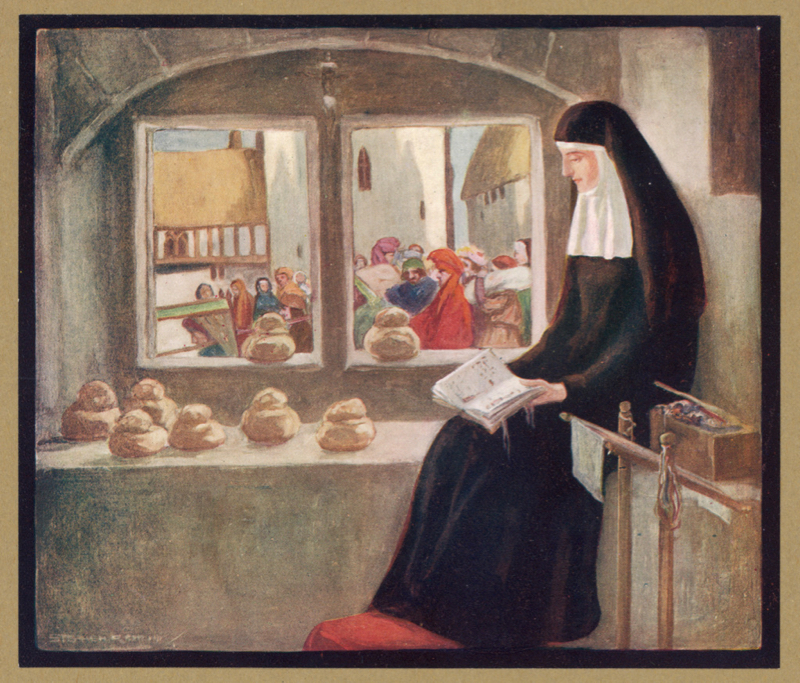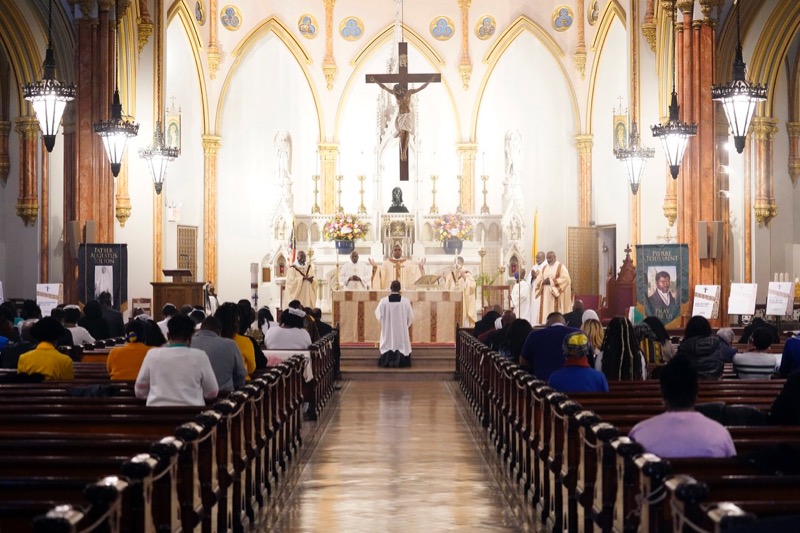The feast of Christ, the Universal King, was instituted in 1925, by the scholarly, scarily single-minded and stubborn Pope Pius XI. But though the imagery of kingship for God is ancient, it might reasonably be asked whether, in our egalitarian, non-deferential age, it’s now redundant.
When the feast was instituted, there were plenty of kings dotted around the world; but even then, monarchy wasn’t nearly as relevant to most people’s lives as it once was, partly because, though there are still many despots, dictators and assorted cranks around the globe who lay claim to absolute rule, few Kings and Queens today exercise real power.
Yet whatever may be thought about the datedness or otherwise of its imagery, there’s an abiding and perennially important message in today’s feast. The ostensive spiritual message it sent out to all who cared to listen carried an unmistakeably political subtext.
At the time of its institution in 1925, the menacing shadow of totalitarianism laid loud and brutal claim to total allegiance. Bolshevism was already well-entrenched, Mussolini had been in power for three years, and Hitler’s nascent National Socialist Party was hoving into view. Pius XI clearly intended the feast of Christ the King to be a counter-blast to “the plague of secularism” manifest in these ominous, neo-pagan developments.
The feast was aimed, in other words, at the barely concealed idolatry that seeks to make an absolute of political power, whether the power of a party, an ideology or a demagogue. It was intended to assert and proclaim that we have an alleigance with which no political persuasion, no matter how attractive or benign its policies may appear, must ever be allowed to compete.
It wasn’t, of course, that Pius XI was suggesting that we owe allegiance to some other ideology or political institution. On the contrary, to proclaim Christ as Universal King is to outlaw identifying any human institution or ideology whatever with God. This feast was aimed, in other words, at idolatry. Of course, nobody worships an idol in conscious preference to God. The essence of idolatry is that we set our hearts on something we mistake for God or, what amounts to the same thing, on something we mistake for goodness. And it’s precisely people of a religious disposition who are most prone to idolise, as well as demonise.
Sex, success, and reputation are all obvious secular candidates for idolatry: but they’re idols only by analogy. The kind of things religious people make idols of are far less obvious and, for that reason, far more insidious. Religion can just as easily conceal as reveal God. Talk of God, for instance, can all too easily take the place of God. We risk making an idol of our talk of God whenever we forget that, as the Nicholas Lash once said, of all words, “God” is the most difficult to use with sense and integrity. And as Herbert McCabe said somewhere, if you don’t suffer from intellectual vertigo when you’re talking about God, it’s not God you’re talking about.
Again, we risk making an idol of “good works” when they serve to set us apart from others in some spurious, delusory state of spiritual superiority, rather than remind us that we are undeserving recipients of God’s gifts.
We do the same when when the rhetoric of service obscures the reality of need. Jesus nowhere in the gospels speaks of himself as a King, 3 but he does speak of himself as a shepherd, as the good shepherd, indeed; and that self-identification linked him to the creative twist in Israel’s tradition, whereby the King was daringly described as a lowly shepherd.
In this way, as David was taken from tending the flock to rule over Israel, so the gospels see Jesus as the culmination of the Davidic line of kings. But the shock comes when we see what being a ShepherdKing means in practice: this is a King the like of which the world has never known. This divine King is mocked and taunted as an impostor.
But allusions in the Passion narratives to the symbols of sovereignty serve as parodies that undermine and overturn the pretensions of those whose rule is rooted in power rather than authority. Unlike all others, this is a king who refuses to be master of all he surveys, who refuses to sustain his rule by the spilling of blood. On the contrary, it’s his own blood that’s spilled, as he refuses to wield power, both human and divine. And it’s precisely in this powerlessness that the paradox of the Cross is evident: the Cross is a scandalous stumbling block precisely because it’s an assault on that ingrained and seemingly incurable craving in our fallen nature for power.
The cross of Christ places a question mark against all the false self-sufficiencies of our culture, but none more than the idolising of invulnerability and power as the hallmarks of success. In the Cross, we’re taught, quite literally, a crucial lesson: namely, that sanctity in this life unavoidably involves the acceptance of failure. Our redemption was won precisely by Jesus’ acceptance of the failure and powerlessness of the cross, which was the consequence of his being fully human in an inhuman world. But in that acceptance, he teaches us that the only effective 4 and efficacious power is the power of self-forgetting love, the power by which he draws us to Himself; the power that cashes out in what St Paul calls the “fruits of the Spirit”, namely, love, joy, peace, forbearance, kindness, goodness, faithfulness, gentleness and self-control. What this feast of Christ the King teaches us is, in the words of the great Anglican theologian, Austin Farrer (1904-68), that “Love is the strongest instrument of omnipotence.”



 Loading ...
Loading ...
What do you think?
You can post as a subscriber user ...
User comments (1)